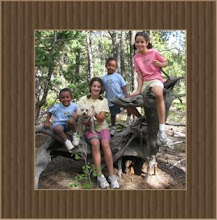If you watch your child closely regarding the cycle of the year, you will likely notice that your child has certain mood swings that are associated with certain months, maybe a particular week or set of days or even a certain day. Whether you mention it or not your child has a subconscious memory of some very significant things. Abandonment, arrival at the orphanage, they day you came to get them. These are all traumatic experiences. There may be other events which trigger reactions that come out of "nowhere". No, your child is most likely not going to remember, be able to identify what has triggered this behavior, or know anything about what happened. It is long gone from his or her conscious memory. It does not really matter what age your child was adopted at. Infant, toddler, preschooler, older child (who will likely remember but still not know why the behavior), all kids have had at least these three traumas, and it will come up in some way at some time. Some kids are more easily upset or act out regularly at these times. Some kids only have these issues when something else triggers at the same time of year. Say your child came home in August. School starts in August. So, that is hard on two fronts, but you can easily attribute certain behaviors to the change they made when they joined your family. It is exacerbated by school starting. The month your child was abandoned may have no other major change in it or regular stressor. It could go by with minor behaviors. But, one year Mom and Dad go on a weekend trip together that same month, and you have done it before but a different month, your child freaks out more than you expected. Abandonment triggered. Not that you are doing anything wrong or unusual, just a trigger, and yet, not JUST.
So, what are you looking for? Well that is as unique as your child. It could be that your child is more needy, attention grabbing, snugly, rejecting of you or others. You could notice an increase of nervous activity, fear, bed-wetting, bad dreams, acting out at school, bossy or controlling behavior, or melt downs and tantrums.
What to do? Extra attention and reassurance is the best place to start. However, before we realize what it is, we are most likely to come down on them for this "sudden" bad or annoying behavior. Just the opposite of what they need. In some cases it works to actually sit down, have a little chat about your child's early life. Read his or her life book together, talk about feelings. Use a feelings picture page to allow him or her to share feelings. Other times they just need extra reassurance that you are there for them, never leaving, safe, secure, etc.
This time of year is probably something you should discreetly mark in your calendar or alerts, just to give yourself the clue to be a bit more gentle than usual. Remember that the seemingly sudden disruption from your child actually means something and they need something from you. As they grow older, they need to know what it is, where it comes from and what to do about it.
What is it? Sometimes called a body memory, sometimes called simply subconscious memory of a traumatic event.
Where does it come from? Those feelings of being left, ...........of being overwhelmed with all the kids, will my needs be met? I must care for myself and trust no one, etc..... Who are these people, can I trust them? Here we go with another change, will I be ok? Do i have to take care of myself here too? Can I feel is it ok? Fear, uncertainty, rejection, etc.
What to do about it? Tell yourself the truth. That was hard, it was sad, it made me feel............. This happened to me, it was real, it was not ideal..................... When my parents came I was afraid, I had all these feelings. That is ok, it is normal. My parents love me. I did not have to take care of myself anymore. I am safe. I have a family who loves me and cares about me and what I do and think and feel. It turned out good. In the article linked to in Subconscious memory it tells about the benefit of telling the story and putting it into conscious memory so that it can be reformatted and dealt with. The theory is that it can then be put into perspective and the person can deal with it in a healthy way.
Recognizing this as real validates the experience of the child and helps them to grow beyond it and from it and become a person who can function in the today.
_______________________________
Facial expressions charts:
smilies
feelings chart
feeling chart and wheel
the two above are very useful for checking in to see how your child is at more volatile times.
_______________________________
A disclaimer.
I post a lot of links. I do so because I feel that the particular page has good information and much to offer. I do not necessarily support all that each site has to say. I trust you to sift the links for information you feel is worthwhile to you.
Saturday, January 21, 2012
Subscribe to:
Post Comments (Atom)
Guest house gives back
Sponsor a Child
Disclaimer
The content on The Wayfarer:Ethiopian Adoption Resource Blog is for informational purposes only. We are adoptive parents, but we are not professionals. The opinions and suggestions expressed here are not intended to replace professional evaluation or therapy, or to supersede your agency. We assume no responsibility in the decisions that families make for their children and families. There are many links on this blog. We believe these other sites have valuable information, but we do not necessarily share all of the opinions or positions represented by each site, nor have we fully researched every aspect of each link. Please keep this in mind when visiting the links from this page.
Thank You.
Thank You.
A Links Disclaimer
I post a lot of links. I do so because I feel that the particular page has good information and much to offer. I do not necessarily support all that each site has to say or promote. I trust you to sift the links for information you feel is worthwhile to you. Each person's story and situation are unique and different things will be useful or not useful to each one in different ways. Please use your own discretion when accessing links and information.











































No comments:
Post a Comment
Please leave a comment: